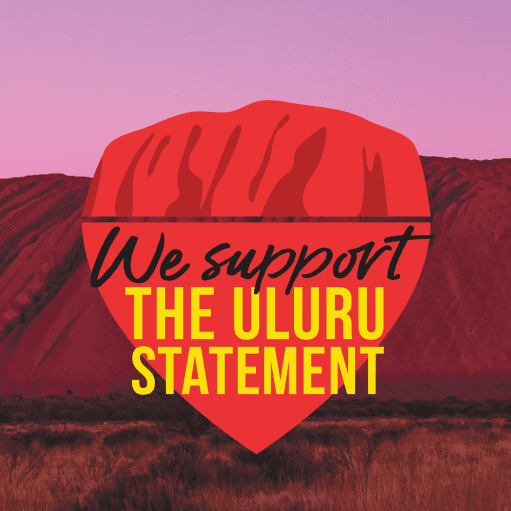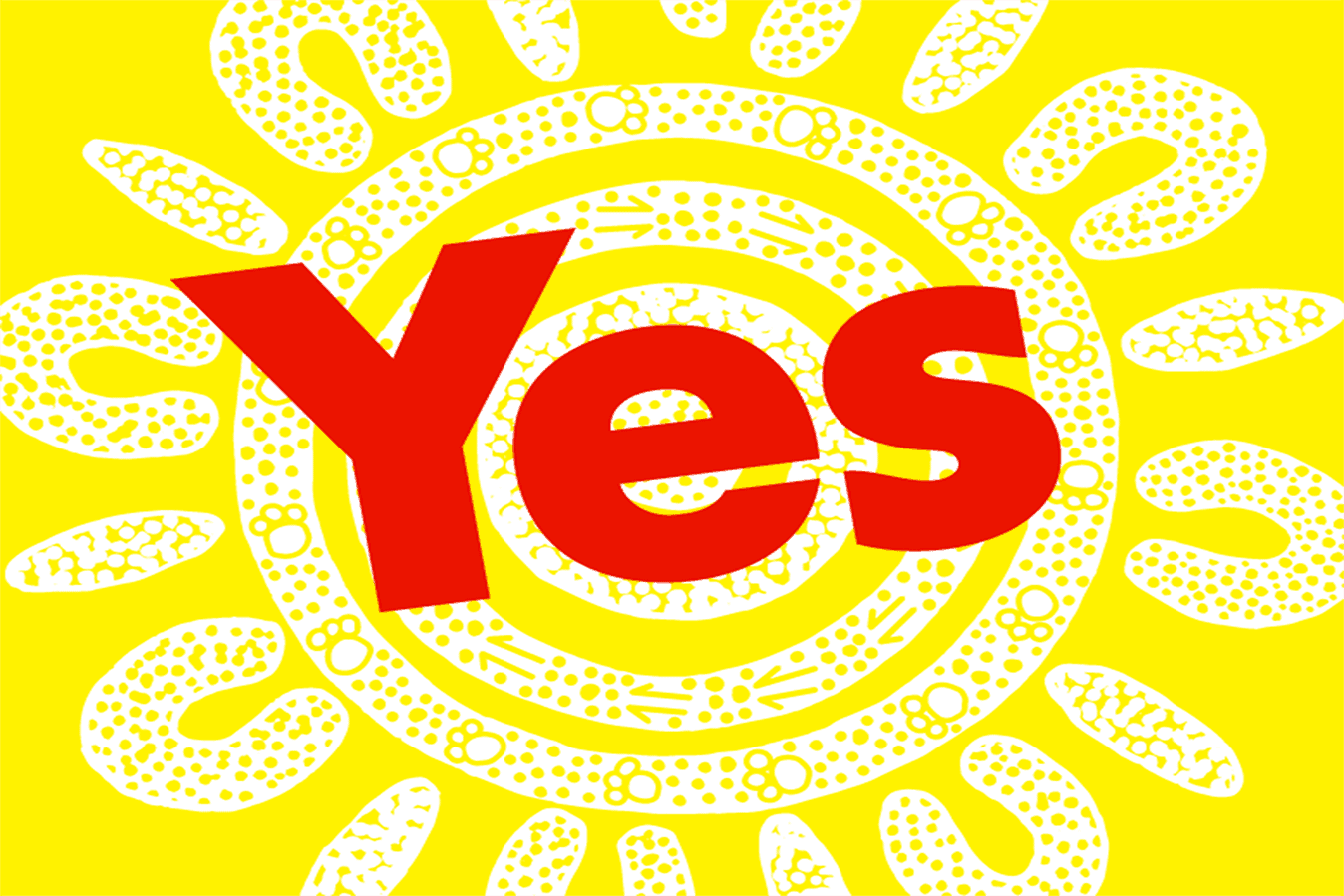Proud Ngunnawal Goulburn woman and registered nurse Jennie Gordon is on a journey advocating for a Yes vote in the referendum for a Voice to Parliament.
Australian voters will take to the polls later this year in a referendum to decide whether an Indigenous Voice to Parliament will be enshrined in the nation’s constitution – enabling Aboriginal and Torres Strait Islander people to provide advice on policies and laws that affect them.
A former Board Member of the Congress of Aboriginal and Torres Strait Islander Nurses and Midwives (CATSINaM) from 2016 to 2019, Ms Gordon was a signatory to the 2017 Uluru Statement from the Heart.
“The Uluru Statement of the Heart was a gift to the Australian people to walk in a spirit of reconciliation and endorse an Aboriginal and Torres Strait Islander Voice to Parliament.
“I spend my time now in my local community sharing about the Statement of the Heart and how important it is for a ‘Yes’ vote. Aboriginal people are not recognised in the Constitution, and sovereignty to the land has never been ceded,” Ms Gordon said.
“The question is: ‘Do you as Australians support a Voice in the Constitution for Aboriginal and Torres Strait Islander people’?
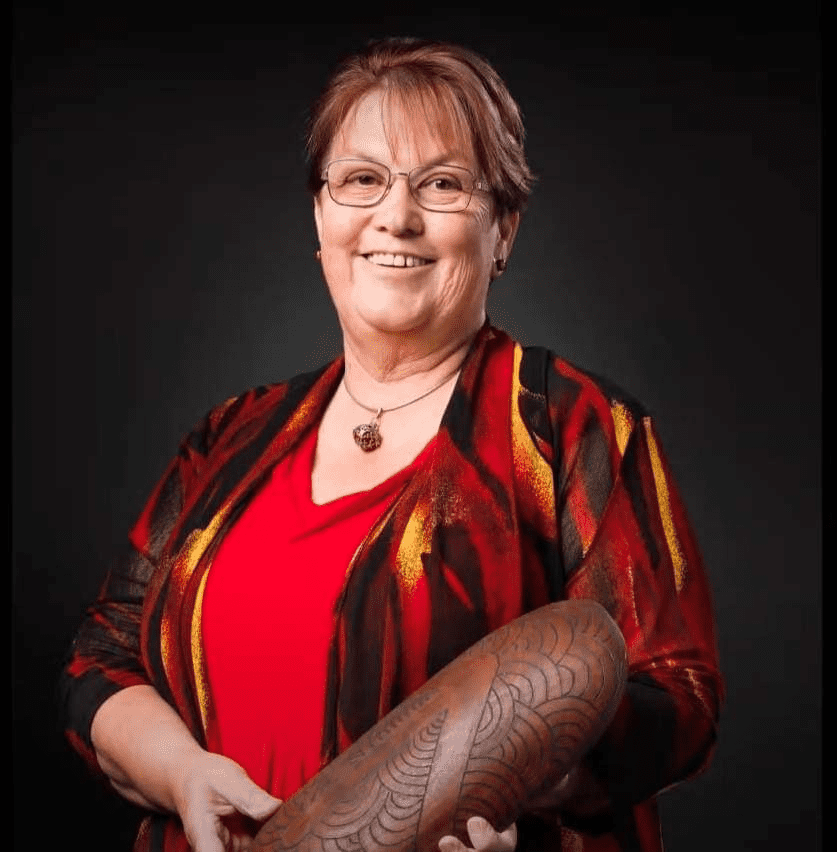
“This is not dependent on the government of the day deciding on whether Aboriginal and Torres Strait Islander people have a Voice, it requires being in the Constitution so the government of the day cannot take it away. It takes a lot to change the constitution,” Ms Gordon said.
A general and mental health trained RN, Ms Gordon has worked in general nursing, mental health, aged care, and disability services as well as OHS and corrections roles and Aboriginal advocacy for almost 50 years. She recently started a three-year term on the Southern NSW Local Health District Board.
Ms Gordon was one of the elected representatives of the ACT and region delegation to the gathering on 26 May 2017 when the Uluru Statement from the Heart was written.
“We were bundled on to a plane, all of us from the southern region, departing from Sydney. All of the airplane crew were Aboriginal or Torres Strait Islander people – from the pilot and co-pilot to all the cabin crew. The screen that separates first class to the rest of the passengers was the Aboriginal flag. That flight was a highlight; it was so well organised and it set the tone.”
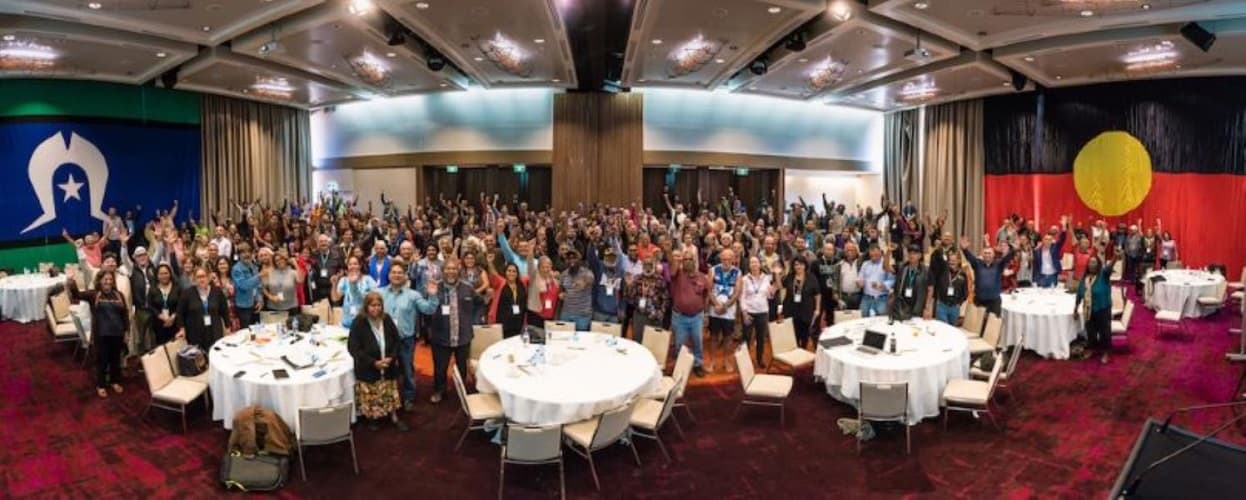
The National Constitutional Convention was attended by 250 Aboriginal and Torres Strait Islander leaders. Of those, an elected group of people were selected to get the wording right on the Statement, Ms Gordon said.
“When it was first read out to the delegates, it was a sheer celebration. Everyone in the room stood up and clapped – it was very beautiful. It is emotive but it is the truth. The truth of history, the truth of today, and how and why Aboriginal people are treated today in Australia.”
The adverse impacts of colonisation and the Stolen Generations continue for Aboriginal and Torres Strait Islander people today, Ms Gordon said.
“Goulburn had four to five orphanages, and like many towns, a lot of children including Aboriginal children of my generation and younger, were dropped there in the 1950s and 1960s. Those children were raised without emotional attachment and then left at an age to be put into domestic servitude or on farm jobs. Under the circumstances, how are they supposed to have the knowledge and skills to provide love and emotional attachment for the following generations?” There are huge numbers of Aboriginal and Torres Strait Islander Children in “out of home care” today and that is reflected in the Statement.
Ms Gordon is a passionate advocate for truth-telling about Australia’s history and has welcomed the introduction of more Aboriginal and Torres Strait Islander literature to the education curriculum from preschool to tertiary level since 2017.
“This is how we educate the next generation, and the next generation to get a much deeper perspective. There are some beautiful and readily accessible books, including Young Dark Emu by Bruce Pascoe and Finding our Heart for Young Australians by Thomas Mayor and Blak Douglas.
“Voice, Makarrata (Treaty) and Truth requires the truth to be told of Australian history. Australian history is not only 300 years old, it is Aboriginal history in the context of 60,000 years, including our social, environment, physical health and wellbeing.
“A lot of birthing on Country and midwifery happened before colonisation and even post-colonisation. The first midwives on this land were Aboriginal and Torres Strait Islander women. Even when the settlers arrived on the boats, and the very poor were exiled to this land as convicts and partnered, those births were assisted by Aboriginal midwives. There is a whole lot of truth to be uncovered.”
Ms Gordon is hopeful a Voice to Parliament will get over the line in a referendum which requires a double majority vote – a majority of voters across Australia in the majority of states (four out of six).
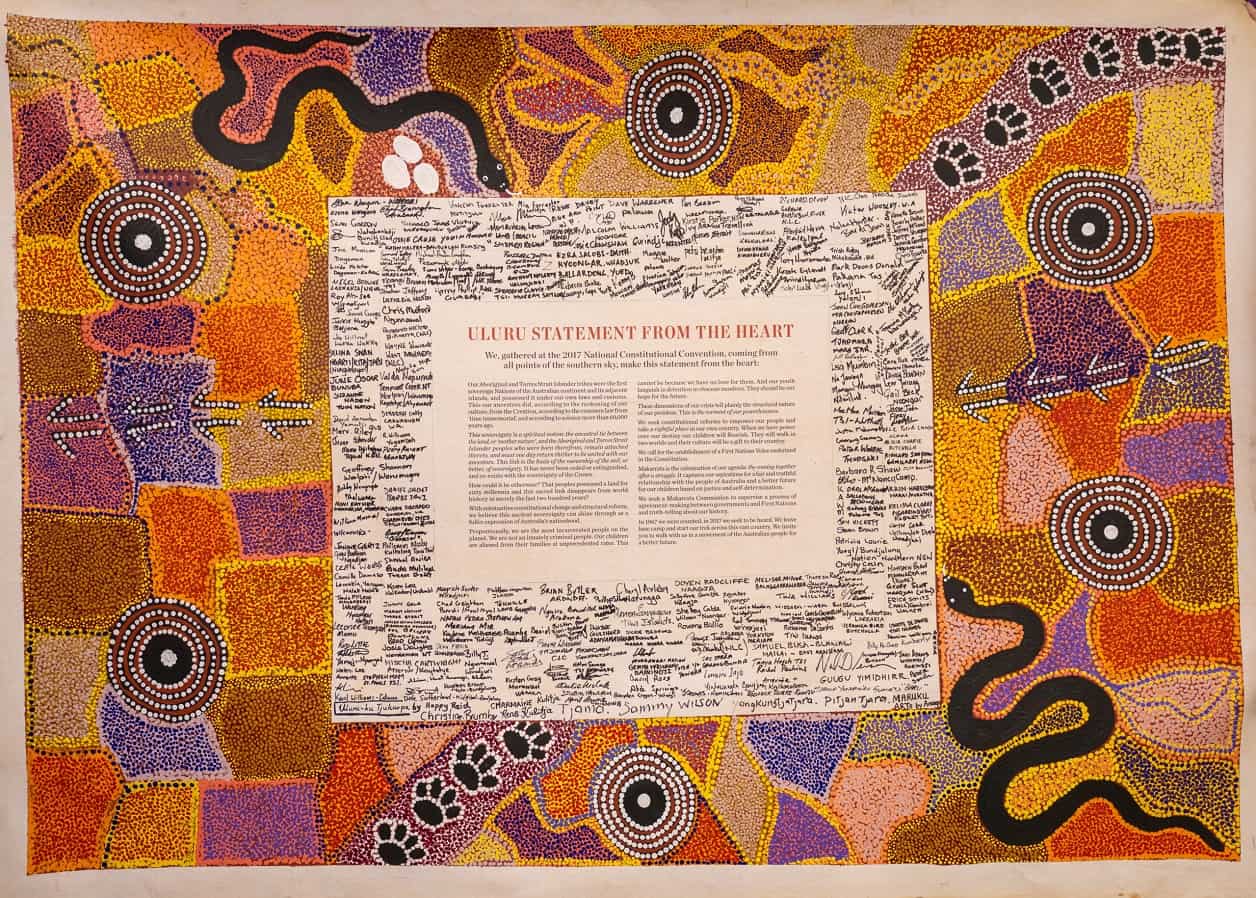
“The Statement on its canvas, was never given to the government to be stored in a museum. The Uluru Statement from the Heart remains with our people and has been taken to the people of Australia as an invitation to walk with us on a journey of reconciliation.
“In 1967 [referendum] we wanted to be counted, now we want to be heard.”
For more information:
The Uluru Statement of the Heart
Yes campaign
Recommended readings:
Young Dark Emu — A Truer History by Bruce Pascoe asks young readers to consider a different version of Australia’s history pre-European colonisation. Free audio recording available for a limited time.
Finding our Heart for Young Australians by Thomas Mayor and Blak Douglas is a story about the Uluru Statement for young Australians.
